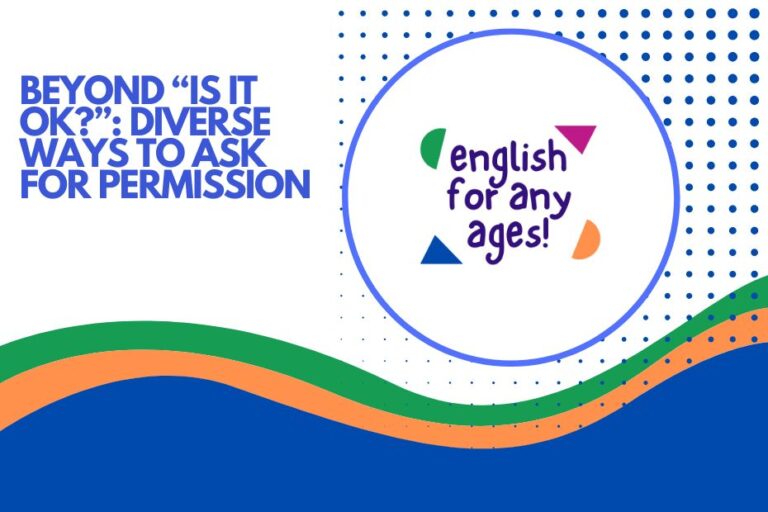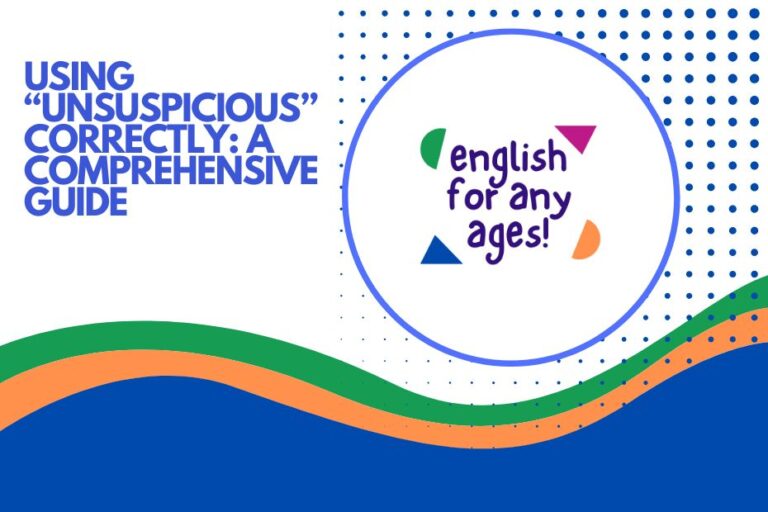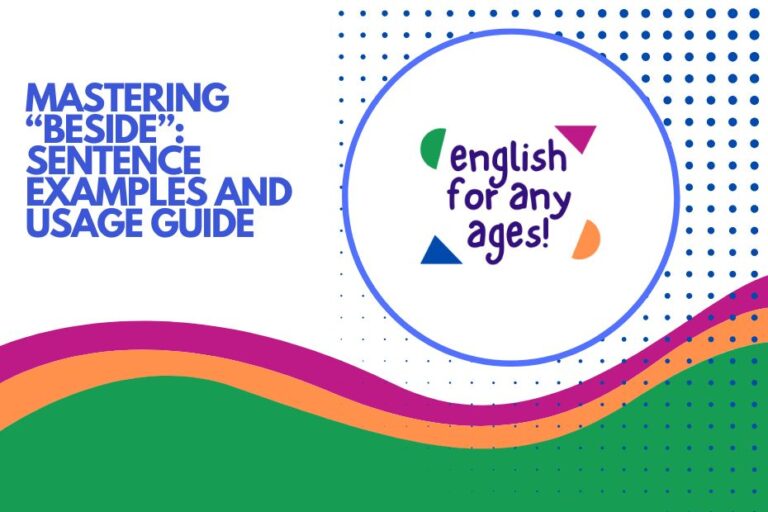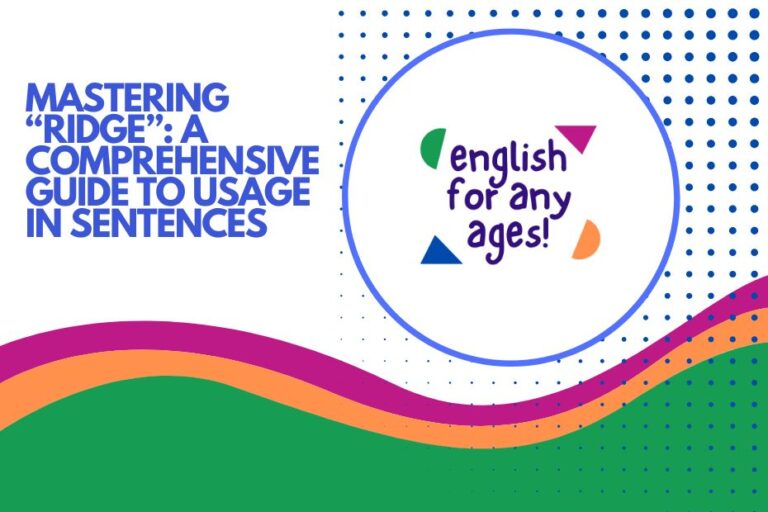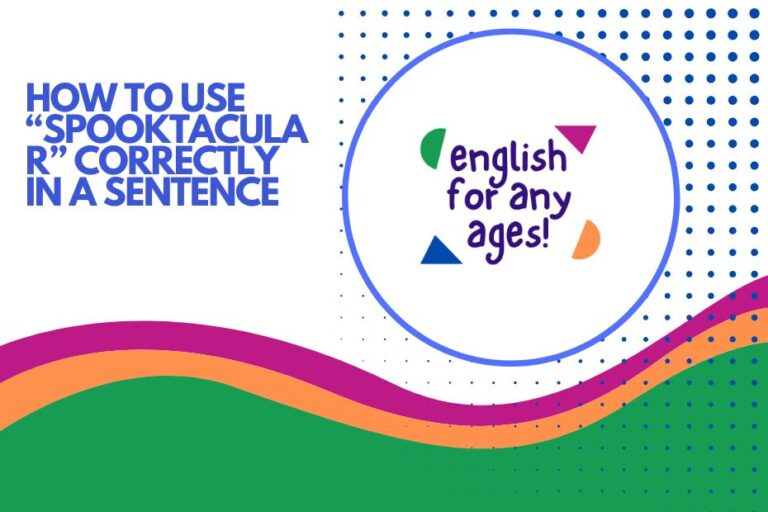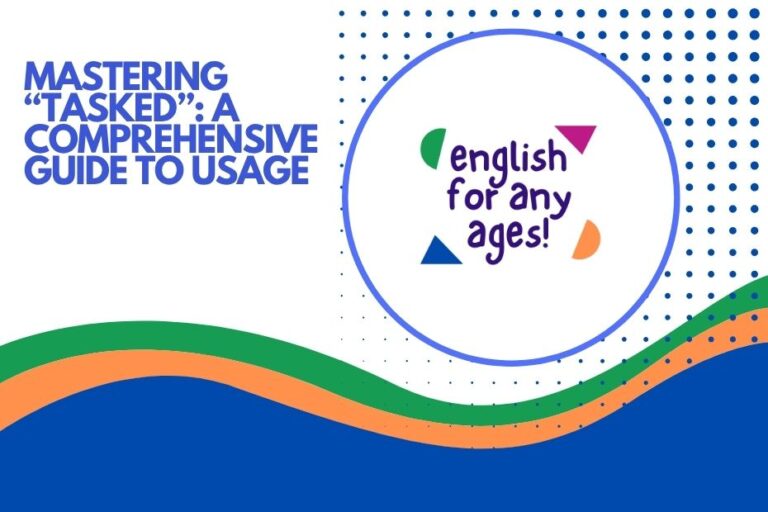How to Use “Conjugate” in a Sentence: A Grammar Guide
Understanding how to conjugate verbs is fundamental to mastering English grammar. Verb conjugation dictates how a verb changes its form to reflect tense, person, number, and mood.
This article provides a comprehensive guide on using “conjugate” in a sentence, covering its definition, structural breakdown, different forms, usage rules, common mistakes, and practice exercises. Whether you’re a beginner or an advanced learner, this guide will help you confidently use “conjugate” and understand the broader principles of verb conjugation.
This article is designed for English language learners of all levels who want to improve their understanding of grammar and verb conjugation. It’s also beneficial for teachers looking for a resource to explain this concept to their students.
Table of Contents
- Introduction
- Definition of “Conjugate”
- Structural Breakdown
- Forms of “Conjugate”
- Examples of “Conjugate” in Sentences
- Usage Rules
- Common Mistakes
- Practice Exercises
- Advanced Topics
- Frequently Asked Questions (FAQ)
- Conclusion
Definition of “Conjugate”
The word “conjugate” has two primary meanings, one general and one specific to grammar. In the general sense, it means to combine or join together. However, in the context of grammar, conjugate refers to the process of changing the form of a verb to indicate different tenses (past, present, future), persons (first, second, third), numbers (singular, plural), and moods (indicative, subjunctive, imperative). This process is essential for constructing grammatically correct sentences.
Verb conjugation is a systematic way of showing how a verb changes depending on who is performing the action and when the action is taking place. Different languages have varying degrees of verb conjugation complexity.
English, while simpler than languages like Spanish or French, still requires a firm grasp of conjugation rules to ensure accurate and effective communication.
Classification and Function
“Conjugate” primarily functions as a verb in English. It is a transitive verb, meaning it requires a direct object.
For example, in the sentence “The teacher will conjugate the verb,” “the verb” is the direct object. However, “conjugate” can also be used in its various conjugated forms to describe the act of conjugating itself.
Understanding its function as both a verb describing an action and a concept being described is crucial.
Contexts of Use
The word “conjugate” is typically used in academic or formal settings, particularly in discussions about grammar and language learning. You’ll often find it in textbooks, grammar guides, and language classes.
However, the concept of conjugation is relevant in all forms of communication, even if the word itself isn’t explicitly used. Whenever you use a verb, you are implicitly conjugating it, whether you realize it or not.
The better you understand the rules of conjugation, the more accurately and effectively you can communicate.
Structural Breakdown
The structure of the word “conjugate” itself is relatively straightforward. It’s a single word with a clear root and a consistent spelling.
Understanding the structural breakdown in relation to sentence structure is more about how “conjugate” and its forms fit into a sentence.
When using “conjugate” as a verb, it must follow the standard subject-verb agreement rules. This means that the form of “conjugate” must agree with the subject in terms of person and number.
For example, “I conjugate” (first-person singular) is different from “He conjugates” (third-person singular). The tense of the verb will also influence its form.
For instance, “I conjugated” (past tense) is distinct from “I will conjugate” (future tense).
Subject-Verb Agreement
Subject-verb agreement is a fundamental principle in English grammar. It dictates that the verb in a sentence must agree in number (singular or plural) with its subject.
This principle is crucial when using “conjugate” in a sentence. If the subject is singular, the verb must be singular; if the subject is plural, the verb must be plural.
For example:
- Singular: The student conjugates the verb.
- Plural: The students conjugate the verb.
Note how the form of “conjugate” changes depending on whether the subject is “student” (singular) or “students” (plural). This agreement is essential for grammatical correctness.
Tense and Aspect
The tense of a verb indicates when the action takes place (past, present, or future). Aspect refers to how the action unfolds over time (simple, continuous, perfect, perfect continuous).
When using “conjugate,” you must choose the appropriate tense and aspect to convey the intended meaning accurately.
Here are some examples:
- Simple Present: I conjugate.
- Present Continuous: I am conjugating.
- Simple Past: I conjugated.
- Past Continuous: I was conjugating.
- Simple Future: I will conjugate.
- Future Continuous: I will be conjugating.
- Present Perfect: I have conjugated.
- Past Perfect: I had conjugated.
- Future Perfect: I will have conjugated.
- Present Perfect Continuous: I have been conjugating.
- Past Perfect Continuous: I had been conjugating.
- Future Perfect Continuous: I will have been conjugating.
Each tense and aspect requires a specific form of “conjugate,” reflecting the time and duration of the action.
Forms of “Conjugate”
The word “conjugate” has several forms, each used in different grammatical contexts. These forms include the base form, the third-person singular present form, the past tense form, the past participle form, and the present participle form.
- Base Form: conjugate
- Third-Person Singular Present: conjugates
- Past Tense: conjugated
- Past Participle: conjugated
- Present Participle: conjugating
Understanding these forms is crucial for using “conjugate” correctly in various tenses and sentence structures.
Base Form
The base form of “conjugate” is simply “conjugate.” It is used in the present tense with all subjects except the third-person singular (he, she, it). It is also used in the infinitive form (to conjugate) and with modal verbs (can, should, will, etc.).
Examples:
- I conjugate verbs regularly.
- They conjugate verbs in class.
- We need to conjugate this verb.
- You should conjugate the verb correctly.
Third-Person Singular Present
The third-person singular present form of “conjugate” is “conjugates.” It is used with the subjects “he,” “she,” and “it” in the present tense.
Examples:
- He conjugates verbs effortlessly.
- She conjugates the verb correctly.
- It conjugates verbs as part of its programming.
Past Tense
The past tense form of “conjugate” is “conjugated.” It is used to describe actions that happened in the past.
Examples:
- I conjugated the verb yesterday.
- They conjugated all the verbs in the exercise.
- She conjugated the verb before checking her answers.
Past Participle
The past participle form of “conjugate” is also “conjugated.” It is used in perfect tenses (present perfect, past perfect, future perfect) and in passive voice constructions.
Examples:
- I have conjugated the verb. (Present Perfect)
- They had conjugated the verb before the test. (Past Perfect)
- The verb will have been conjugated by the end of the lesson. (Future Perfect)
- The verb was conjugated by the student. (Passive Voice)
Present Participle
The present participle form of “conjugate” is “conjugating.” It is used in continuous tenses (present continuous, past continuous, future continuous) and as a gerund (a verb acting as a noun).
Examples:
- I am conjugating the verb right now. (Present Continuous)
- They were conjugating verbs when the bell rang. (Past Continuous)
- He will be conjugating verbs all afternoon. (Future Continuous)
- Conjugating verbs is an important part of learning grammar. (Gerund)
Examples of “Conjugate” in Sentences
This section provides extensive examples of how to use “conjugate” in various sentence structures and tenses. The examples are organized by tense to illustrate the different forms and their usage.
Present Tense Examples
The following table illustrates the use of “conjugate” in the present tense.
| Subject | Verb Form | Example Sentence |
|---|---|---|
| I | conjugate | I conjugate verbs every day to improve my grammar. |
| You | conjugate | You conjugate verbs well, but you need more practice. |
| He | conjugates | He conjugates verbs quickly and accurately. |
| She | conjugates | She conjugates verbs as part of her language studies. |
| It | conjugates | The software conjugates verbs automatically. |
| We | conjugate | We conjugate verbs together in class. |
| They | conjugate | They conjugate verbs to master English grammar. |
| The student | conjugates | The student conjugates the verb correctly. |
| The students | conjugate | The students conjugate the verbs in the exercise. |
| My friend | conjugates | My friend conjugates verbs with ease. |
| My friends | conjugate | My friends conjugate verbs together. |
| The teacher | conjugates | The teacher conjugates the example verb on the board. |
| The teachers | conjugate | The teachers conjugate verbs as part of the lesson plan. |
| The computer | conjugates | The computer conjugates the verbs instantly. |
| The computers | conjugate | The computers conjugate verbs for language learning platforms. |
| The program | conjugates | The program conjugates verbs based on user input. |
| The programs | conjugate | The programs conjugate verbs in multiple languages. |
| A linguist | conjugates | A linguist conjugates verbs to study language patterns. |
| Linguists | conjugate | Linguists conjugate verbs to analyze grammatical structures. |
| The author | conjugates | The author conjugates verbs correctly in his writing. |
| Authors | conjugate | Authors conjugate verbs to create clear and effective prose. |
| The speaker | conjugates | The speaker conjugates verbs to communicate effectively. |
| Speakers | conjugate | Speakers conjugate verbs naturally in conversation. |
| This student | conjugates | This student conjugates verbs exceptionally well. |
| These students | conjugate | These students conjugate verbs with great enthusiasm. |
| That person | conjugates | That person conjugates verbs accurately. |
| Those people | conjugate | Those people conjugate verbs for their language exam. |
Past Tense Examples
The following table illustrates the use of “conjugate” in the past tense.
| Subject | Verb Form | Example Sentence |
|---|---|---|
| I | conjugated | I conjugated the verb yesterday. |
| You | conjugated | You conjugated the verb correctly. |
| He | conjugated | He conjugated the verb quickly. |
| She | conjugated | She conjugated the verb perfectly. |
| It | conjugated | The program conjugated the verb automatically. |
| We | conjugated | We conjugated the verb together. |
| They | conjugated | They conjugated the verb in class. |
| The student | conjugated | The student conjugated the verb easily. |
| The students | conjugated | The students conjugated all the verbs. |
| My friend | conjugated | My friend conjugated the verb without difficulty. |
| My friends | conjugated | My friends conjugated the verbs for practice. |
| The teacher | conjugated | The teacher conjugated the difficult verb. |
| The teachers | conjugated | The teachers conjugated verbs during the training session. |
| The computer | conjugated | The computer conjugated the verb almost instantly. |
| The computers | conjugated | The computers conjugated verbs for the entire lesson. |
| The program | conjugated | The program conjugated the verb based on the input. |
| The programs | conjugated | The programs conjugated verbs from multiple texts. |
| A linguist | conjugated | A linguist conjugated the ancient verbs for research. |
| Linguists | conjugated | Linguists conjugated verbs from the old dialect. |
| The author | conjugated | The author conjugated the verbs to match the tense. |
| Authors | conjugated | Authors conjugated verbs to create the desired effect. |
| The speaker | conjugated | The speaker conjugated verbs to convey the story. |
| Speakers | conjugated | Speakers conjugated verbs in the historical context. |
| This student | conjugated | This student conjugated the verb more accurately than before. |
| These students | conjugated | These students conjugated verbs for extra practice. |
| That person | conjugated | That person conjugated verbs with surprising ease. |
| Those people | conjugated | Those people conjugated verbs for their language project. |
Future Tense Examples
The following table illustrates the use of “conjugate” in the future tense.
| Subject | Verb Form | Example Sentence |
|---|---|---|
| I | will conjugate | I will conjugate the verb tomorrow. |
| You | will conjugate | You will conjugate the verb in the next lesson. |
| He | will conjugate | He will conjugate the verb later. |
| She | will conjugate | She will conjugate the verb perfectly next time. |
| It | will conjugate | The program will conjugate the verb automatically in the update. |
| We | will conjugate | We will conjugate the verb together next week. |
| They | will conjugate | They will conjugate the verb in their study group. |
| The student | will conjugate | The student will conjugate the verb after reading the instructions. |
| The students | will conjugate | The students will conjugate all the verbs in the assignment. |
| My friend | will conjugate | My friend will conjugate the verb when he has time. |
| My friends | will conjugate | My friends will conjugate the verbs to prepare for the test. |
| The teacher | will conjugate | The teacher will conjugate the verb on the board for us. |
| The teachers | will conjugate | The teachers will conjugate verbs to demonstrate the rules. |
| The computer | will conjugate | The computer will conjugate the verb immediately. |
| The computers | will conjugate | The computers will conjugate verbs for the online tutorial. |
| The program | will conjugate | The program will conjugate the verb upon receiving the command. |
| The programs | will conjugate | The programs will conjugate verbs to create interactive exercises. |
| A linguist | will conjugate | A linguist will conjugate the ancient verbs for further analysis. |
| Linguists | will conjugate | Linguists will conjugate verbs to understand the language’s evolution. |
| The author | will conjugate | The author will conjugate the verbs in his new book. |
| Authors | will conjugate | Authors will conjugate verbs to enhance the narrative. |
| The speaker | will conjugate | The speaker will conjugate verbs to engage the audience. |
| Speakers | will conjugate | Speakers will conjugate verbs to express their ideas effectively. |
| This student | will conjugate | This student will conjugate the verb with extra care. |
| These students | will conjugate | These students will conjugate verbs to improve their fluency. |
| That person | will conjugate | That person will conjugate verbs to pass the language test. |
| Those people | will conjugate | Those people will conjugate verbs for their collaborative assignment. |
Perfect Tense Examples
The following table illustrates the use of “conjugate” in the perfect tenses.
| Tense | Subject | Verb Form | Example Sentence |
|---|---|---|---|
| Present Perfect | I | have conjugated | I have conjugated the verb correctly. |
| Past Perfect | You | had conjugated | You had conjugated the verb before I arrived. |
| Future Perfect | He | will have conjugated | He will have conjugated the verb by tomorrow. |
| Present Perfect | She | has conjugated | She has conjugated all the verbs in the exercise. |
| Past Perfect | It | had conjugated | The program had conjugated the verb before the crash. |
| Future Perfect | We | will have conjugated | We will have conjugated the verb by the end of the class. |
| Present Perfect | They | have conjugated | They have conjugated the verb many times. |
| Past Perfect | The student | had conjugated | The student had conjugated the verb before the test. |
| Future Perfect | The students | will have conjugated | The students will have conjugated all the verbs by Friday. |
| Present Perfect | My friend | has conjugated | My friend has conjugated the verb perfectly. |
| Past Perfect | My friends | had conjugated | My friends had conjugated all the verbs before the deadline. |
| Present Perfect | The teacher | has conjugated | The teacher has conjugated the verb as an example. |
| Past Perfect | The teachers | had conjugated | The teachers had conjugated verbs in preparation for the workshop. |
| Future Perfect | The computer | will have conjugated | The computer will have conjugated all the verbs within seconds. |
| Present Perfect | The computers | have conjugated | The computers have conjugated verbs for thousands of users. |
| Past Perfect | The program | had conjugated | The program had conjugated the verb flawlessly. |
| Future Perfect | The programs | will have conjugated | The programs will have conjugated verbs for the entire database. |
| Present Perfect | A linguist | has conjugated | A linguist has conjugated the verb to analyze its usage. |
| Past Perfect | Linguists | had conjugated | Linguists had conjugated verbs from the document before translating it. |
| Future Perfect | The author | will have conjugated | The author will have conjugated verbs in the manuscript before submission. |
| Present Perfect | Authors | have conjugated | Authors have conjugated verbs in diverse ways to suit different styles. |
| Past Perfect | The speaker | had conjugated | The speaker had conjugated verbs for the entire speech. |
| Future Perfect | Speakers | will have conjugated | Speakers will have conjugated verbs to convey the complexity of the topic. |
| Present Perfect | This student | has conjugated | This student has conjugated verbs exceptionally well this semester. |
| Past Perfect | These students | had conjugated | These students had conjugated verbs before the lesson began. |
| Future Perfect | That person | will have conjugated | That person will have conjugated verbs by the time the course ends. |
| Present Perfect | Those people | have conjugated | Those people have conjugated verbs from the novel for their project. |
Usage Rules
Several rules govern the proper use of “conjugate” in a sentence. These rules relate to subject-verb agreement, tense consistency, and the appropriate use of different verb forms.
Subject-Verb Agreement Rules
As mentioned earlier, subject-verb agreement is crucial. The verb “conjugate” must agree in number and person with its subject.
This means using “conjugate” with plural subjects and “conjugates” with singular third-person subjects (he, she, it).
Tense Consistency Rules
Maintain tense consistency within a sentence or paragraph. Avoid unnecessary shifts in tense that can confuse the reader.
If you start in the past tense, generally stay in the past tense unless there’s a clear reason to switch.
Form Usage Rules
Use the correct form of “conjugate” for the intended tense and aspect. For example, use “conjugated” for the past tense and past participle, “conjugating” for the present participle, and “conjugates” for the third-person singular present tense.
Common Mistakes
Several common mistakes occur when using “conjugate.” These mistakes often involve incorrect subject-verb agreement or using the wrong verb form.
| Incorrect | Correct | Explanation |
|---|---|---|
| He conjugate the verb. | He conjugates the verb. | The third-person singular subject “he” requires the verb form “conjugates.” |
| I conjugates verbs every day. | I conjugate verbs every day. | The first-person singular subject “I” requires the base form “conjugate.” |
| She have conjugated the verb. | She has conjugated the verb. | The third-person singular subject “she” requires the auxiliary verb “has” in the present perfect tense. |
| They was conjugating the verb. | They were conjugating the verb. | The plural subject “they” requires the auxiliary verb “were” in the past continuous tense. |
| We will conjugated the verb. | We will conjugate the verb. | Modal verbs like “will” are followed by the base form of the verb. |
| You is conjugating verbs. | You are conjugating verbs. | The subject “you” requires the auxiliary verb “are” in the present continuous tense. |
| The student conjugate the verb. | The student conjugates the verb. | The singular subject “the student” requires the verb form “conjugates.” |
| The students conjugates the verb. | The students conjugate the verb. | The plural subject “the students” requires the verb form “conjugate.” |
Practice Exercises
Test your understanding of “conjugate” with these practice exercises. Fill in the blanks with the correct form of “conjugate.”
Exercise 1: Present Tense
| Question | Answer |
|---|---|
| I ______ verbs every day. | conjugate |
| You ______ verbs well. | conjugate |
| He ______ verbs quickly. | conjugates |
| She ______ verbs accurately. | conjugates |
| It ______ verbs automatically. | conjugates |
| We ______ verbs together. | conjugate |
| They ______ verbs in class. | conjugate |
| The student ______ the verb correctly. | conjugates |
| The students ______ the verbs in the exercise. | conjugate |
| My friend ______ verbs with ease. | conjugates |
Exercise 2: Past Tense
| Question | Answer |
|---|---|
| I ______ the verb yesterday. | conjugated |
| You ______ the verb correctly. | conjugated |
| He ______ the verb quickly. | conjugated |
| She ______ the verb perfectly. | conjugated |
| It ______ the verb automatically. | conjugated |
| We ______ the verb together. | conjugated |
| They ______ the verb in class. | conjugated |
| The student ______ the verb easily. | conjugated |
| The students ______ all the verbs. | conjugated |
| My friend ______ the verb without difficulty. | conjugated |
Exercise 3: Future Tense
| Question | Answer |
|---|---|
| I ______ the verb tomorrow. | will conjugate |
| You ______ the verb in the next lesson. | will conjugate |
| He ______ the verb later. | will conjugate |
| She ______ the verb perfectly next time. | will conjugate |
| It ______ the verb automatically in the update. | will conjugate |
| We ______ the verb together next week. | will conjugate |
| They ______ the verb in their study group. | will conjugate |
| The student ______ the verb after reading the instructions. | will conjugate |
| The students ______ all the verbs in the assignment. | will conjugate |
| My friend ______ the verb when he has time. | will conjugate |
Advanced Topics
For advanced learners, understanding the nuances of “conjugate” in more complex grammatical structures is essential. This includes using “conjugate” in the subjunctive mood, conditional sentences, and with gerunds and infinitives.
Subjunctive Mood
The subjunctive mood is used to express wishes, suggestions, or hypothetical situations. While less common in modern English, it’s important to recognize its usage.
For instance, “I suggest that he conjugate the verb” uses the subjunctive mood.
Conditional Sentences
In conditional sentences, the form of “conjugate” depends on the type of conditional. For example, in a first conditional, you might say, “If you conjugate the verb correctly, you will get a good grade.” In a second conditional, you might say, “If I were to

